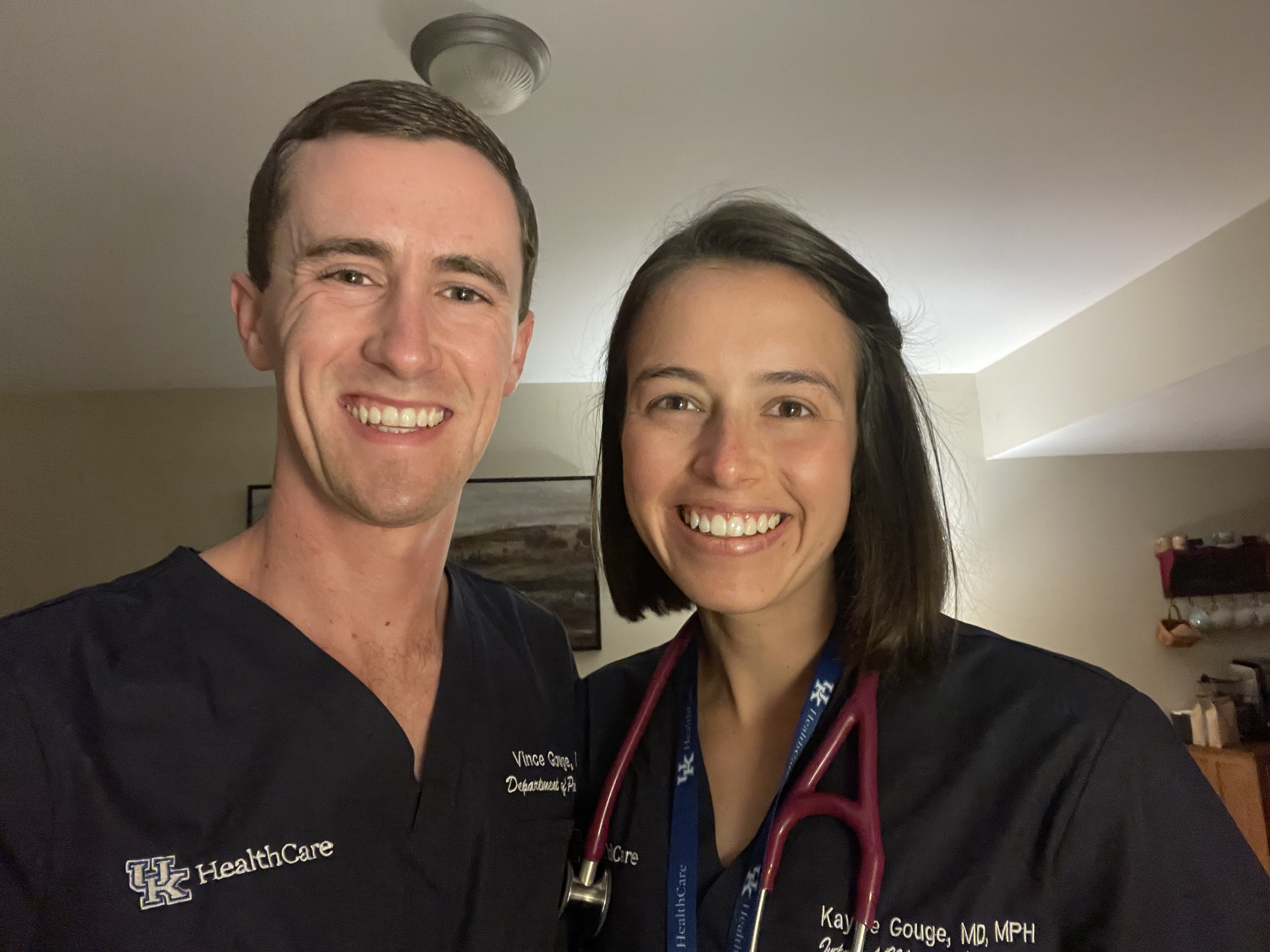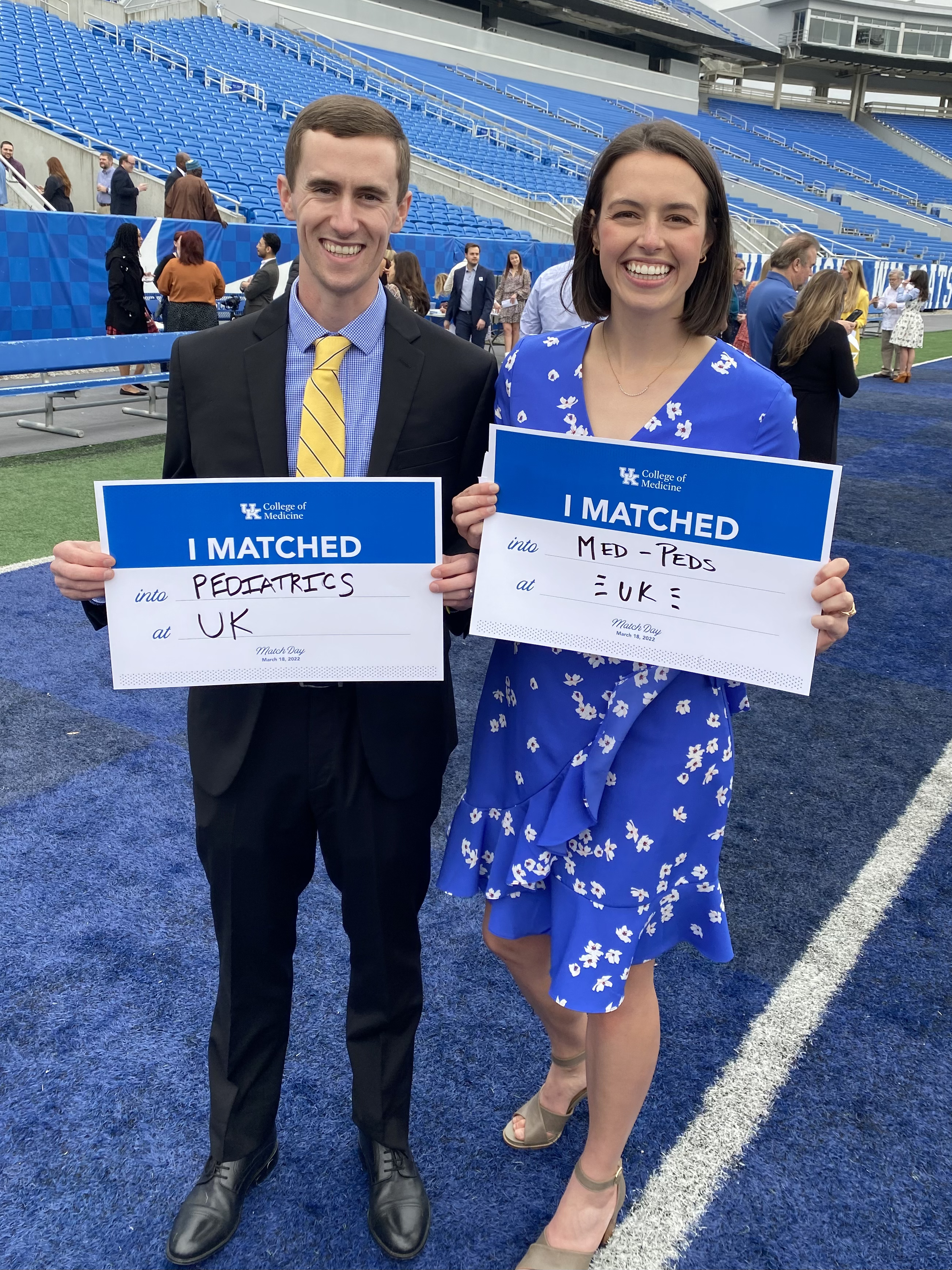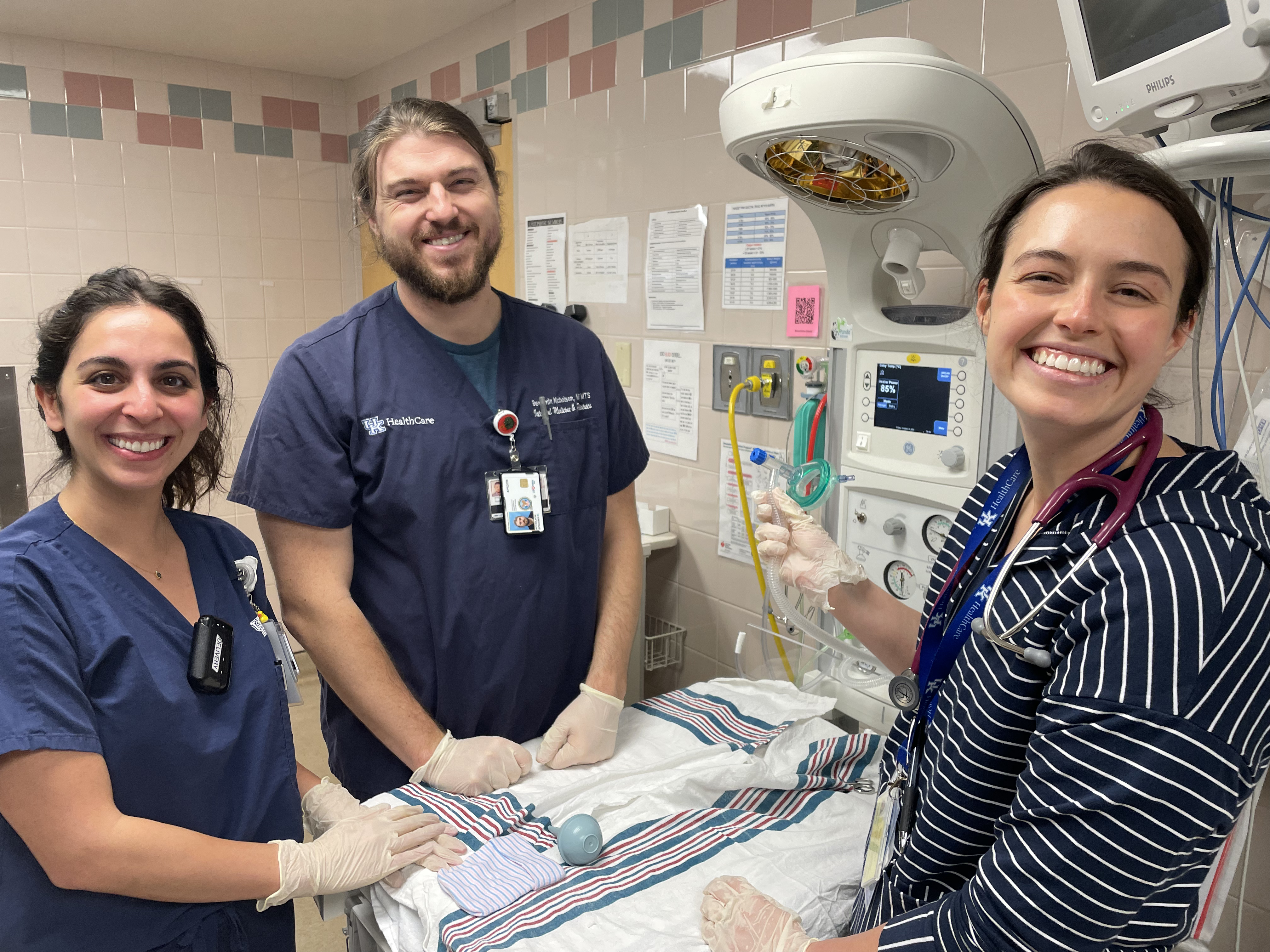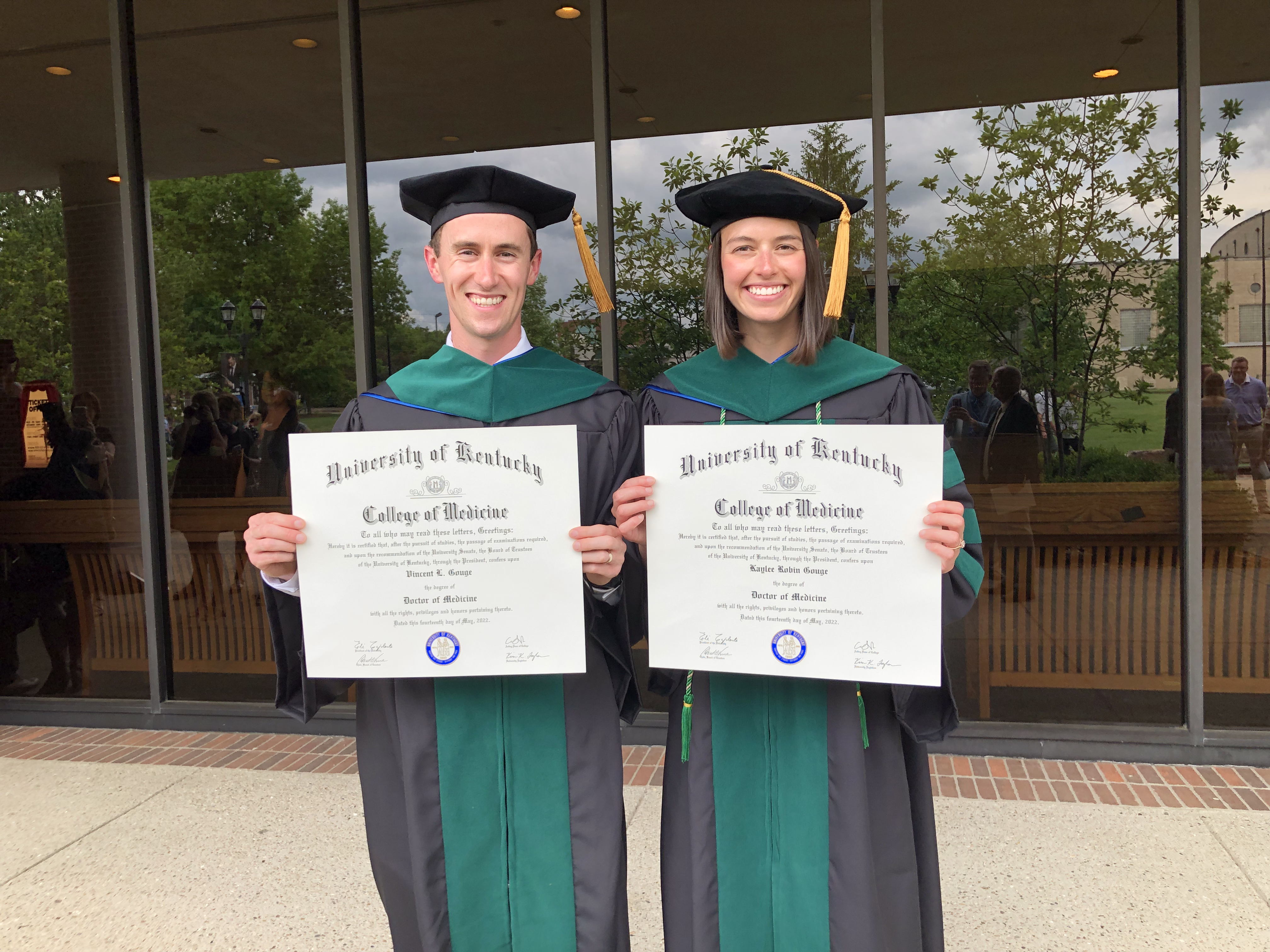Kaylee Gouge, MD, received her medical doctorate from the UK College of Medicine and is currently in her second year of combined Internal Medicine-Pediatrics residency training, a four-year program that leads to certification in both specialties.
Med-Peds residents learn to provide exceptional patient care, addressing the spectrum of illness in newborns, children, adolescents, and adults. Every four months, residents rotate between pediatrics and internal medicine services.
In the Q&A below, Dr. Gouge discusses her resident experience, prioritizing wellness, and her future career aspirations.
Q. How do you balance the demands of your residency with your well-being and hobbies?
A. Being well in residency requires finding ways to be well while at work, since spending the majority of time there is part of the deal. For me, this looks like watching the entire Harry Potter series with co-residents on night shifts, ordering Door Dash with the team on weekends, and playing “guess that film score” with my interns on long call days. Also, I hired a wonderful housekeeper so I can spend my days off actually resting.
Q. What has been the most challenging aspect of your medical education, and how have you overcome it?
A. The most challenging part about Med-Peds is our quarterly “switch” back and forth between the disciplines. I have found, though, that with each switch I find more and more commonality between the fields. Med-Peds training has stretched my ability to adapt and think broadly about patient care. I think the important thing is to stay curious and be willing to ask questions, no matter the number after my PGY-.
Q. What are your career aspirations post-graduation, and how is your residency preparing you for it?
A. Med-Peds residents spend a lot of time on inpatient services, where patients are often contemplating end-of-life decisions. My attendings have given me great autonomy in discussing those decisions with patients. This experience has helped me find my true passion: Hospice and Palliative Medicine. I love getting to know patients as whole people, finding out how to help their symptoms, and speaking with them in a way that helps them to make informed choices about their care.
Q. Can you discuss a mentor or faculty member who has significantly impacted you?
A. How can I possibly describe Dr. Kristen Fletcher? [Kristen Fletcher, MD, associate professor of internal medicine] She is a tireless source of encouragement, sound judgment, fresh perspective, and confetti. In some of my lowest moments of residency, Dr. Fletcher has helped me see myself candidly and kindly. She has also (literally) clapped and cheered for me in my successes. Through her example, she has empowered me to become a more thoughtful doctor and person. Who else would take an entire ward team outside to have a dance party and then sit out in the sunshine for table rounds? She is a joy.
Q. What's the best piece of advice you have received since joining the UK College of Medicine?
A. To consider Med-Peds! When he interviewed me for medical school, Dean Griffith encouraged me to consider Med-Peds.



